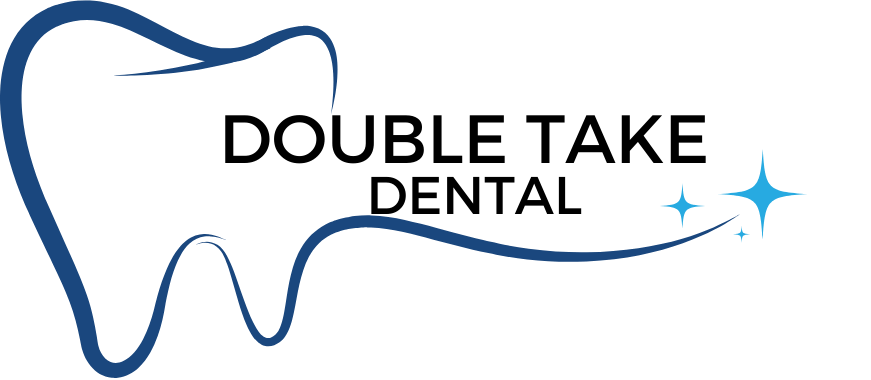What Foods To Avoid After a Tooth Extraction & What to Eat
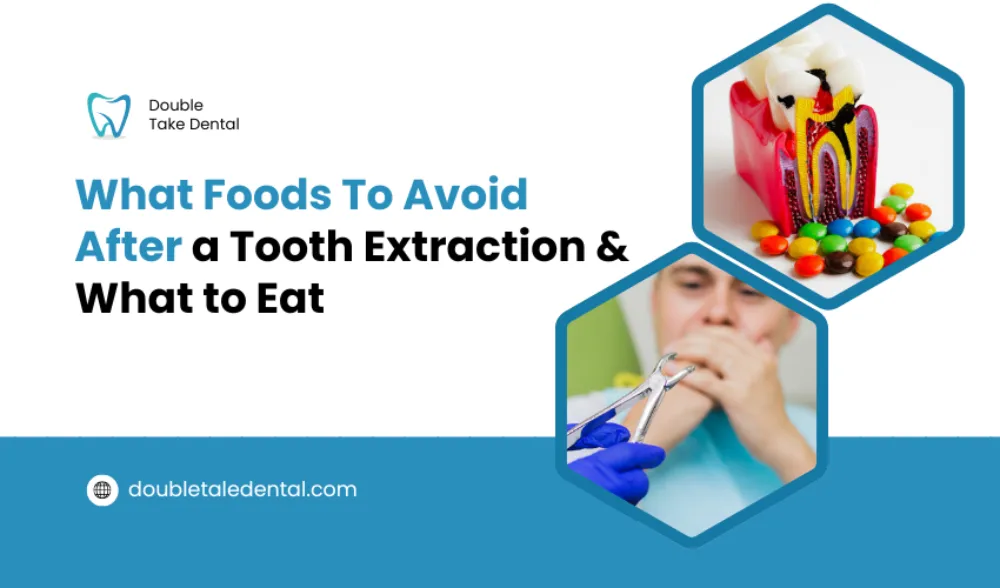
Has your dentist suggested that you have a tooth extraction, but you are afraid of the healing process? This happens very frequently.
Tooth extraction is very common to treat various dental issues like decayed or damaged teeth. It also provides a base for other dental treatments like dental implants. There are various technologies that have made the process easy and safe.
However, the major concern for various people is the healing process. They usually ask what they should eat to recover soon or speed up their healing. Because of things to avoid after a tooth extraction, skipping some foods is very crucial.
In this guide, we will let you know the 6 foods to avoid after tooth extraction. We will also cast a glance at how food affects your healing and which foods promote healing.
Why Certain Foods Can Be Dangerous After Tooth Removal
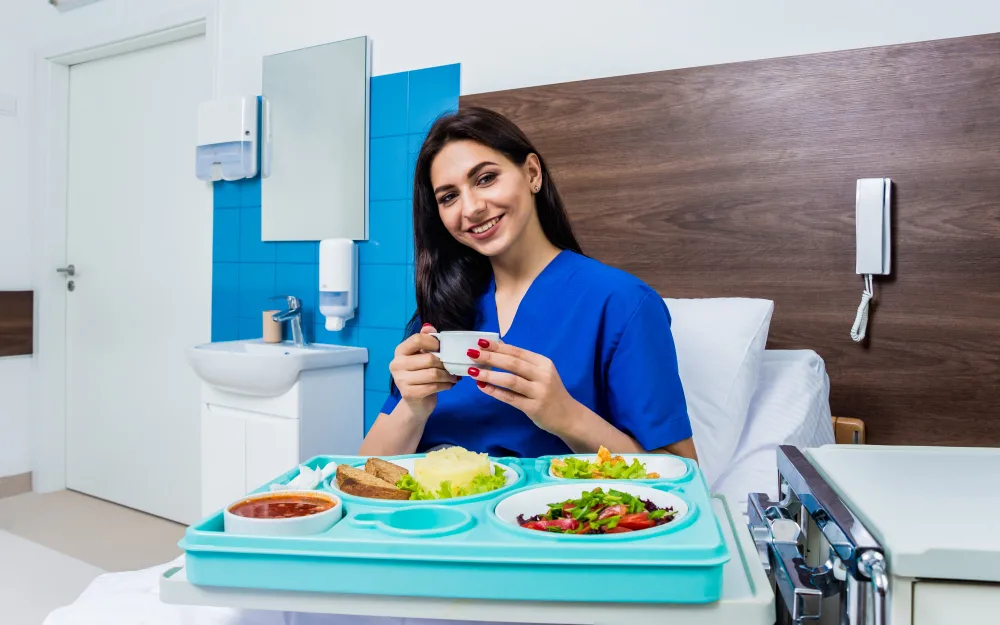
When you have a tooth pulled, your body forms a small blood clot exactly where the tooth was. That tiny clot stops the bleeding, protects the bone underneath, and starts the healing process.
If that clot gets dislodged or dissolves too soon, it can lead to a painful problem called dry socket. It slows down the healing process and can even cause:
- Throbbing pain that spreads to your ear or jaw
- Bad breath or a foul taste in your mouth
- A higher risk of infection or further dental issues
Crunchy, sticky, or hot foods can:
- Knock the blood clot loose
- Irritate the surgical site
- Invite bacteria into the wound
That is why choosing the right foods after your extraction is necessary. By sticking with soft, safe options, you can protect that clot and give your mouth the best shot at healing without problems.
What Not to Eat After Tooth Extraction
Right after the tooth extraction, your mouth starts the healing process. You can make this process smooth and undisturbed by avoiding hard and sticky foods.
Here are the 6 foods that you must avoid for a good recovery.
1. Crunchy and Hard Foods
Crunchy and hard food like nuts and chips is delicious to eat as snacks. However after tooth extraction, such foods can be harmful to your healing spot. Their small particles can lodge into the healing site, damage or remove your blood clot, and cause intense bleeding.
2. Sticky or Chewy Foods
Caramel, taffy, and chewing gum are not good to eat after tooth extraction. These foods cling to your teeth and stretch your jaw. That tugging or suction can pull the blood clot loose and put you at risk for a dry socket.
3. Hot Foods and Drinks
Hot foods and drinks like coffee, tea, or extremely hot soups are part of the daily food intake. However, you are required to avoid these foods during the first few days after your tooth extraction treatment. Their elevated temperature increases the blood flow in your mouth. This high blood flow dissolves the blood clot before your body is ready for it, exposing your wounded gums.
4. Acidic and Spicy Foods
Acidic and spicy foods, including oranges, pineapples, tomatoes, and spicy sauces, can dry out your mouth but are not suitable for the recovery phase. These can irritate your gums, cause the area to become more swollen, and exacerbate the wound. This makes your recovery process more complex as your mouth is already sore.
5. Tough or Chewy Foods
Some foods, such as steak, crusty bread, granola bars, and raw vegetables, require a lot of chewing. Chewing puts pressure on your jaw and the area where you are healing. This can cause the site to become sore or even disrupt the clot. It is best to keep your food simple and soft for a few days after your oral surgery.
6. Carbonated and Alcoholic Drinks
Carbonated and alcoholic drinks like soda, sparkling water, beer, and wine might seem harmless, but they are not. The bubbles from carbonation can lift the clot.
Alcohol, meanwhile, slows healing and does not mix well with any pain medications or antibiotics you might be taking. Avoid these for at least 2–3 days or longer if your dentist advises.
Safe Foods That Help You Heal
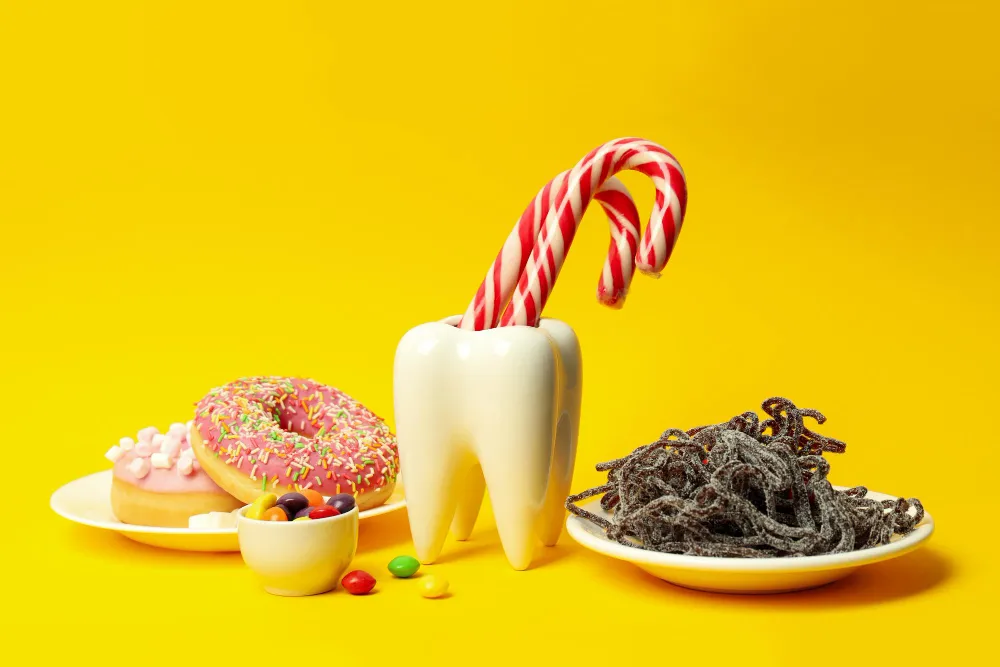
Now that you know what foods to avoid after a tooth extraction, let’s discuss what is safe to eat and beneficial for healing.
- Mashed potatoes: They are soft, warm (not hot), and filling, which makes them a comforting and easy choice during recovery.
- Yogurt or kefir: These are smooth, cool, and gentle on your mouth. Plus, they are packed with healthy bacteria that support healing.
- Smoothies: A great way to get nutrients without chewing. Just make sure they are not too cold or made with acidic fruits.
- Applesauce and bananas: Both are soft, sweet, and easy to eat. They are also non-acidic, so they will not irritate your gums.
- Scrambled eggs: They are soft, easy to chew, and full of protein, which helps your body repair tissue.
- Cooled oatmeal: It is a great source of energy and fiber. It is gentle on your healing mouth when not served hot.
These foods protect your healing gums and give your body the nutrients it needs. As your mouth starts to feel better, you can slowly go back to eating regular foods—just follow your dentist’s advice.
Final Thoughts
What not to eat after a tooth extraction plays a crucial role in how well and how quickly you heal. Based on the advice of dental professionals, it is essential to avoid hard, sticky, spicy, acidic, and hot foods during the first 3 to 5 days of recovery. These items can dislodge the protective blood clot.
Carbonated and sugary drinks, along with alcohol, should also be avoided, as they can irritate the surgical site and interfere with your body’s natural healing process. To further protect the area, avoid chewing on the extraction side and minimize excessive jaw movement. Following these guidelines ensures a safer, more comfortable recovery.
If you’re looking for a safe place for tooth extraction or guidance on a smooth recovery, consult our experts at Double Take Dental. Our skilled and respectful staff ensures that you receive the best quality treatment with experienced hands and that you are comfortable throughout the process.
Frequently Asked Questions
You should avoid eating popcorn for several hours after a tooth extraction. They can stick in the healing site and cause bacterial growth and infection.
Sticky foods promote tooth cavities even on normal days. After having a tooth extraction, you must avoid such foods for a few days. It can lead to clot removal, dry socket or dental cavities, and infections.
You can eat fruit, but go for non-acidic options like bananas, applesauce, or mashed pears. They are gentle on your mouth and give you vitamins and fiber.
It is okay to chew things. However, avoid eating foods that require more chewing. Also, avoid chewing on the site of surgery to avoid any inconvenience.
Recent Posts

What Foods To Avoid After a Tooth Extraction & What to Eat
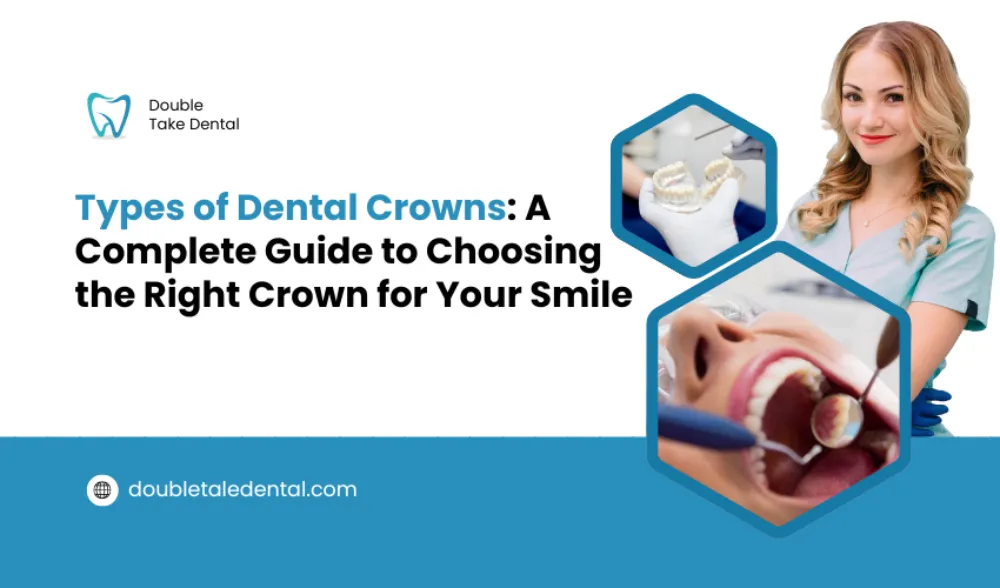
Types of Dental Crowns: A Complete Guide to Choosing the Right Crown for Your Smile
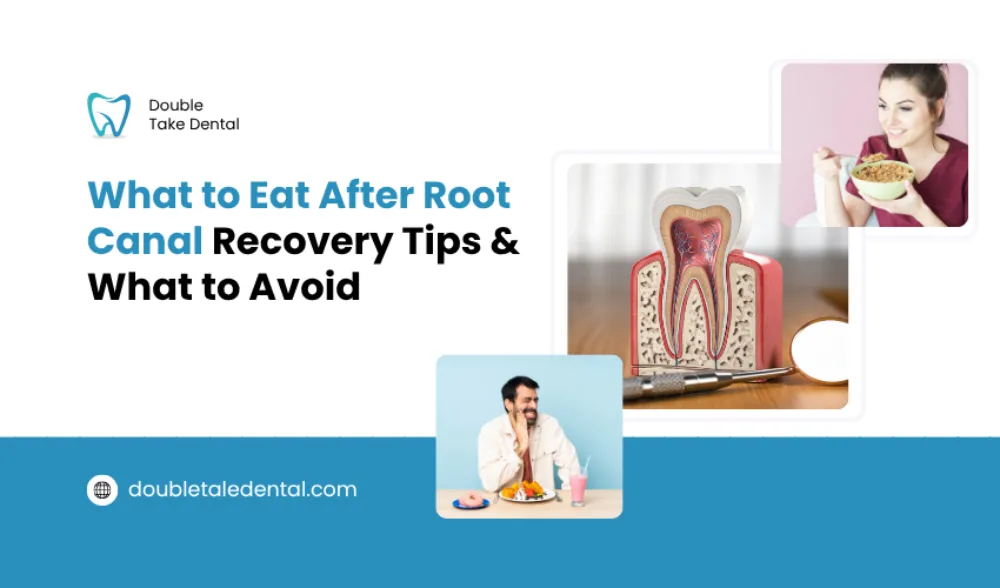
What to Eat After Root Canal: Recovery Tips & What to Avoid

